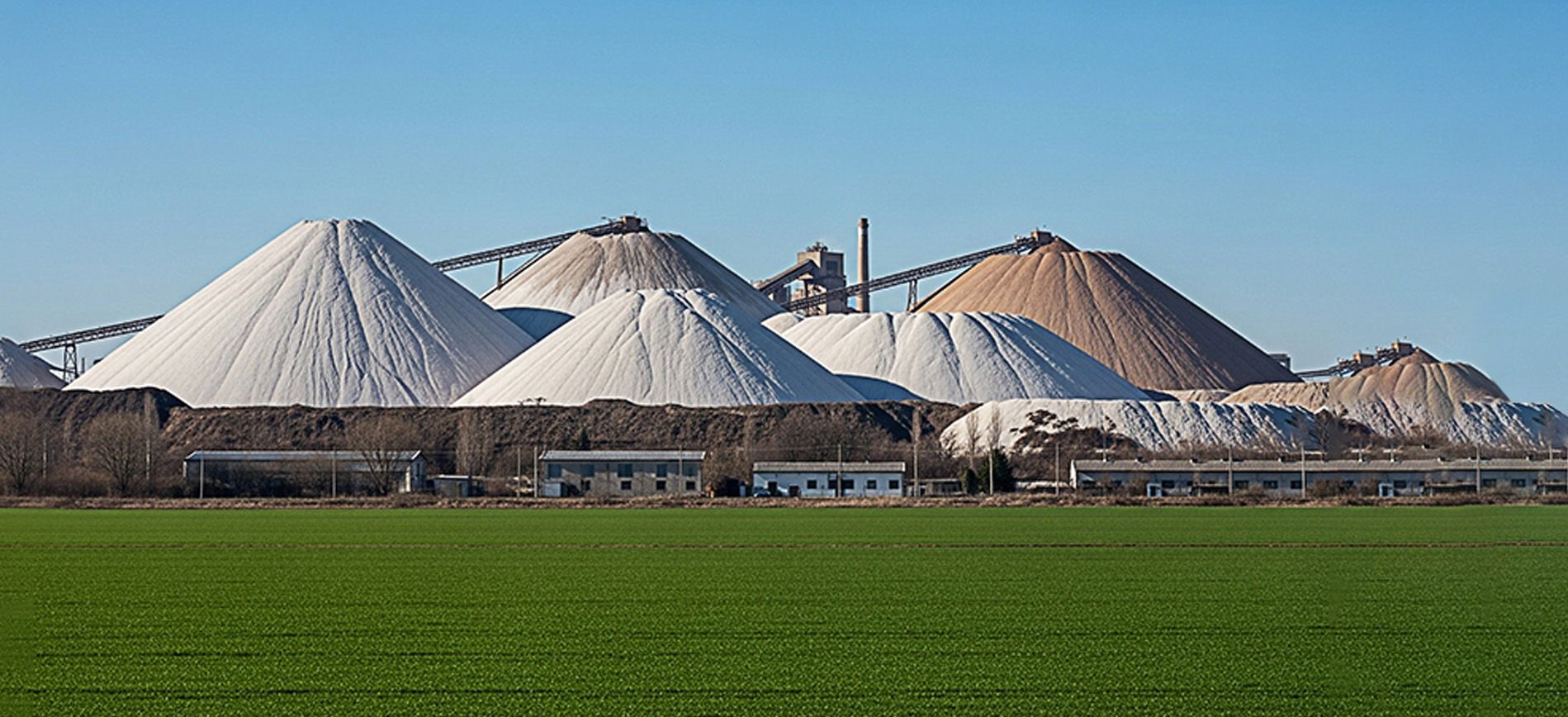The Role of Artificial Intelligence (AI) in Revolutionizing Fertilizer Supply Chains
The Role of Artificial Intelligence (AI) in Revolutionizing
Fertilizer Supply Chains

As the global agricultural sector faces increasing demands for efficiency and sustainability, artificial intelligence (AI) is emerging as a transformative force in fertilizer supply chains. From optimizing production processes to predicting market trends, AI technologies are helping fertilizer companies enhance their operations, reduce costs, and improve environmental outcomes. This blog explores how AI is reshaping the fertilizer industry and its supply chain dynamics.
AI in
Fertilizer Production
AI-driven solutions are streamlining fertilizer production by:
- Optimizing Manufacturing Processes: Machine learning algorithms analyze production data to reduce energy consumption and waste in fertilizer plants.
- Predictive Maintenance: AI identifies potential equipment failures before they occur, minimizing downtime and ensuring consistent production.
- Quality Control: Advanced AI systems monitor raw materials and finished products to ensure compliance with quality standards.
Demand Forecasting and Inventory Management
AI is revolutionizing how fertilizer companies manage demand and inventory:
- Accurate Market Predictions: AI-powered models analyze historical data, weather patterns, and economic trends to forecast fertilizer demand.
- Inventory Optimization: Smart systems monitor inventory levels and predict restocking needs, reducing overproduction and stockouts.
- Dynamic Pricing: AI algorithms adjust pricing based on market conditions, ensuring competitive pricing while maximizing profitability.
AI in Logistics and Distribution
Efficient logistics are critical for the fertilizer supply chain, and AI plays a pivotal role:
- Route Optimization: AI-powered logistics platforms calculate the most efficient delivery routes, saving fuel and reducing carbon emissions.
- Real-Time Tracking: Advanced tracking systems powered by AI provide real-time visibility into shipments, ensuring timely delivery and improving customer satisfaction.
- Cost Reduction: AI automates scheduling and freight allocation, reducing transportation costs and increasing overall efficiency.
Enhancing Farmer Engagement
AI technologies are bridging the gap between fertilizer companies and farmers:
- Personalized Recommendations: AI-powered platforms provide tailored advice to farmers on fertilizer use based on soil data, crop type, and weather forecasts.
- Digital Marketplaces: AI-enabled platforms connect farmers directly with suppliers, streamlining the procurement process and improving access to quality fertilizers.
- Training and Education: Virtual assistants and chatbots powered by AI offer farmers real-time guidance and answers to their queries.
Environmental Benefits
AI is helping the fertilizer industry meet its sustainability goals:
- Precision Agriculture: AI tools enable precise application of fertilizers, reducing overuse and minimizing environmental impacts.
- Carbon Footprint Reduction: AI-driven optimizations in production and logistics reduce greenhouse gas emissions across the supply chain.
- Waste Management: AI systems identify opportunities to recycle waste products, supporting circular economy practices in fertilizer production.
Challenges and Future Prospects
Despite its potential, AI adoption in the fertilizer industry faces challenges:
- High Implementation Costs: Deploying AI technologies requires significant investment in infrastructure and training.
- Data Limitations: Accurate and comprehensive data are essential for AI systems, but many companies lack sufficient data collection capabilities.
- Farmer Adoption: Ensuring that farmers trust and adopt AI-driven tools remains a hurdle.
Looking ahead, advancements in AI and greater collaboration between technology providers and fertilizer companies promise to overcome these challenges, unlocking new opportunities for growth and innovation.
Conclusion
Artificial intelligence is revolutionizing the fertilizer supply chain, driving efficiency, sustainability, and profitability across the industry. By leveraging AI in production, logistics, and farmer engagement, the fertilizer sector is poised to meet growing global demand while minimizing environmental impacts. As AI technologies continue to evolve, their role in shaping the future of agriculture and fertilizer supply chains will only expand.




